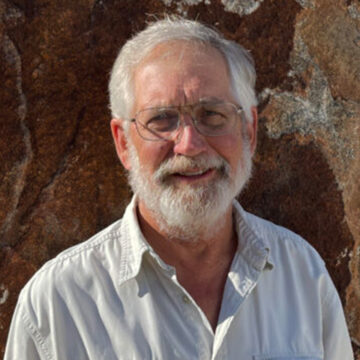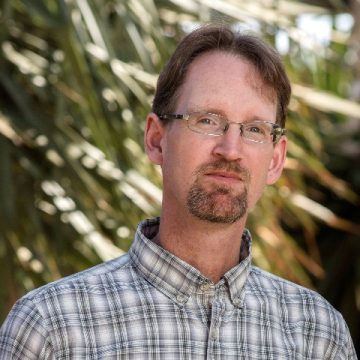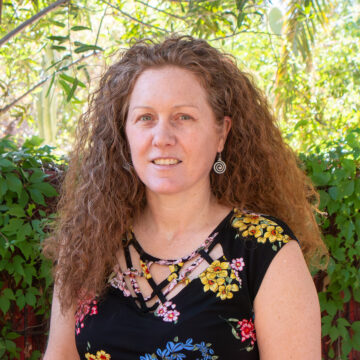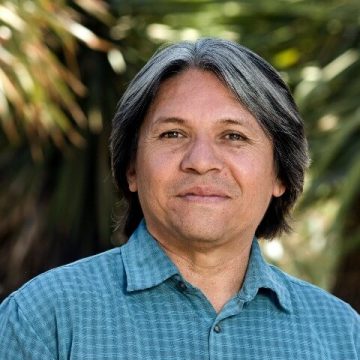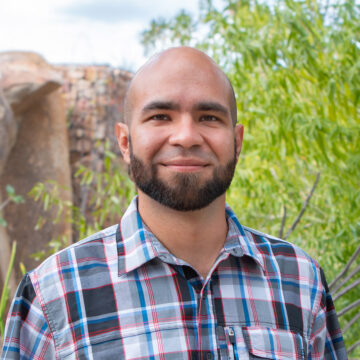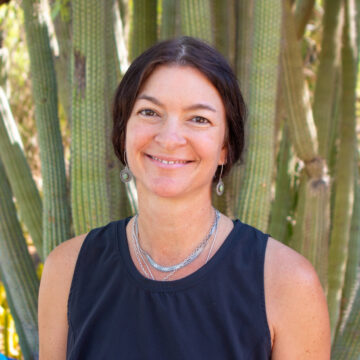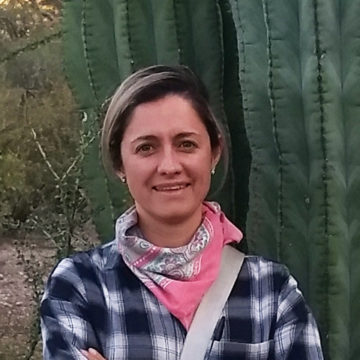Meet our team
Alexandra (Ali) Schuessler, M.S.
Lab Manager
Email: [email protected]
Root associated fungi in desert and riparian plants, and its influence and impact on restoration. Genomics of fungi and desert plants. Plant physiology of riparian and desert plants.
Andrew Salywon, PH.D.
Herbarium Curator and Research Botanist
Email: [email protected]
Phone: 480.481.8107
Botanical inventories, endemic, rare and endangered plants of Arizona and the Sonoran Desert, molecular ecology, new crop development for arid-lands, and plant systematics using both traditional and molecular data.
Ariana Ewell, B.S.
IUCN CSSG Program Officer
Email: [email protected]
Riparian ecosystem protection and preservation, Geographic Information Systems, Endangered species awareness and education
Aryn Musgrave, M.S.
GIS Manager
Email: [email protected]
Phone: 480.423.7010
As part of the Research, Conservation, and Collections team, I manage the enterprise geographic information system and oversee mapping of the plants in Desert Botanical Garden's living collection. In addition to mapping our living collection, I also support the department by collaborating on research projects and providing maps and spatial analysis for publications.
Beth Brand
Librarian
Schilling Library
Email: [email protected]
Phone: 480.481.8133
Collections care and conservation, archiving and preservation of the Garden’s history.
Brad Posch, Ph.D.
Post-Doctoral Research Scientist, Plant Eco-Physiology
Email: [email protected]
Plant thermal tolerance and acclimation; leaf photosynthesis and respiration; chlorophyll fluorescence; plant physiological ecology and global change.
Challie Facemire, Ph.D.
Central Arizona Conservation Alliance Program Director
Email: [email protected]
Phone: 480.481.8167
Collaborative conservation, law and policy impacts on large-scale land management, cross boundary ecosystem and biodiversity conservation and management.
Dan F. Koepke, M.S.
Research Technician
Email: [email protected]
Phone: 480.941.1225
Plant-water relations, plant hydraulic systems, morphological and physiological investigation, histology and riparian restoration.
Ivanna Caspeta, M.S.
Research Assistant
Email: [email protected]
Research in plant ecology and laboratory techniques. Propagation of rare plants for conservation and reintroduction.
Jessica de Foy, B.A.
Administrative Assistant - Research, Conservation and Collections Department
Email: [email protected]
Phone: 480.481.7016
Departmental expenses and grant projects. Staff researcher and events/programs coordination.
Joe Mcauliffe, PH.D.
Director Emeritus & Senior Research Scientist
Email: [email protected]
Phone: 480.481.8105
Multidisciplinary collaborations involving geology, soil science, hydrology and ecology
Kevin R. Hultine, Ph.D.
Director of Research
Email: [email protected]
Phone: 480.481.8195
Water relations, photosynthesis and thermal tolerance of plants in arid and semi-arid regions; desert riparian plant ecology and conservation; population dynamics of desert shrubs,trees and cactus species.
Kim Pegram, Ph.D.
Program Director, Pollinator Conservation and Research
Email: [email protected]
Phone: 480.481.8135
Butterfly ecology and conservation, monarch conservation, plant-insect interactions, butterfly and pollinator science outreach to encourage conservation action.
Kimberlie McCue, PH.D.
Chief Science Officer
Email: [email protected]
Phone: 480.481.8137
Population ecology and genetics of rare plants, in situ and ex situ seed bank dynamics, invasive species, conservation science outreach and education.
Kristen Kindl
Living Collections Specialist/HHCPS Project Manager
Email: [email protected]
Phone: 480.481.2078
Databasing and accessioning the Garden’s Living Collections; production and placement of plant identification labels
Lane E. Butler, M.S.
Tonto National Forest Rare Plant Community Science Project Coordinator
Email: [email protected]
Coordination of community science surveys for rare plants on the Tonto National Forest, rare plant research, endangered plant species conservation and restoration.
Luis C. Romero, B.S.
Conservation Collections Research Assistant
Email: [email protected]
Developing horticulture and conservation practices for rare plants through tissue culture, In-situ and ex-situ plant conservation, Development of propagation and restoration techniques relating to native desert ecosystems, Ecosystems, ethnography, and botany of the southwest, Practical conservation science, education, and outreach.
Mary Chisolm, M.S.
Central Arizona Conservation Alliance Engagement Coordinator
Email: [email protected]
Engage with partners, organize outreach events and community science projects, facilitate meetings and support initiatives that advance CAZCA's mission and support the Regional Open Space Strategy (ROSS).
Natalie Melkonoff, B.S.
Plant and Insect Ecology Program Manager
Email: [email protected]
Phone: 480.941-3516
Plant-insect ecology, monarch conservation, native plant propagation, plant physiology, habitat restoration, science outreach.
Raul Puente-Martinez, M.S.
Curator Of Living Collections, Research Botanist
Email: [email protected]
Phone: 480.481.8110
Systematics of Opuntieae (Cactaceae), hybridization of prickly pears, floristics, use of native and low-water-use plants in landscaping
Ricardo Garcia, B.S.
Plant Materials Technician
Email: [email protected]
Phone: 480.941.3506
Native plant propagation and seed collection, pollinator ecology, habitat restoration and community outreach.
Sarah Hunkins, B.S.
Herbarium Collections Manager
Email: [email protected]
Phone: 480.418.8152
Curation, conservation and processing of the collections
Shannon D. Fehlberg, Ph.D.
Dorrance Family Foundation Conservation Biologist
Email: [email protected]
Phone: 480.481.8143
Evolution and population genetics and genomics of rare plants and their relatives; distribution and historical biogeography; factors affecting genetic and species diversity; polyploidy and hybridization
Steven A. Blackwell, B.S.
Conservation Collections Manager
Email: [email protected]
Phone: 480.481.8175
Developing propagation techniques and protocols for rare plants, seed germination and viability studies of rare plants, habitat restoration and species reintroduction
Susan Bush, PhD; Biology
Field Ecology Program Director
Email: [email protected]
Global change ecology; plant ecophysiology; carbon and water fluxes; instrumentation and measurement systems.
Tania Hernandez, PH.D.
New World Succulents Cactus Scientist
Email: [email protected]
Phone: 480.481.8129
Origin, evolution and diversification of succulent lineages with a focus on Cactaceae and Agavoideae.
Wendy C. Hodgson, M.S
Herbarium Curator Emerita
Senior Research Botanist
Email: [email protected]
Phone: 480.481.8108
Floristics of Southwestern United States, particularly Grand Canyon region, Cactaceae and Agavaceae systematics, ethnobotany of Sonoran Desert, invasive species, systematics of rare Southwestern plants.










